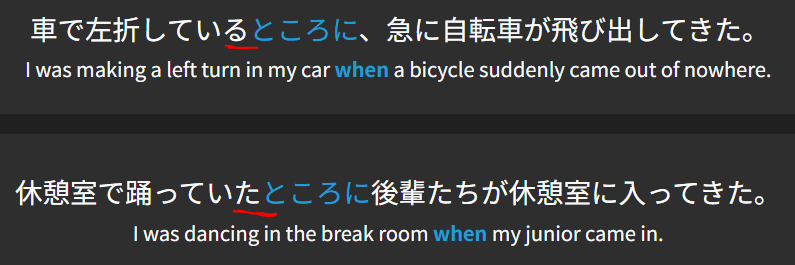Hello!
I have noticed this on quite a few grammar points, but haven’t seen them side by side until today so I thought this would be a good opportunity to ask!
What is the difference in meaning of a verb using the past tense before a noun, or the dictionary form before a noun?
I was under the impression that they mean just about the same thing, but the past tense before a noun acts more as an adjective / actually is attributed to the noun?
I’ve seen plenty of examples of either case, and I’ve not really come across an obvious difference in translation. Any help or pointers would be appreciated!
In the image attached, there doesn’t seem to be a difference in translation:

